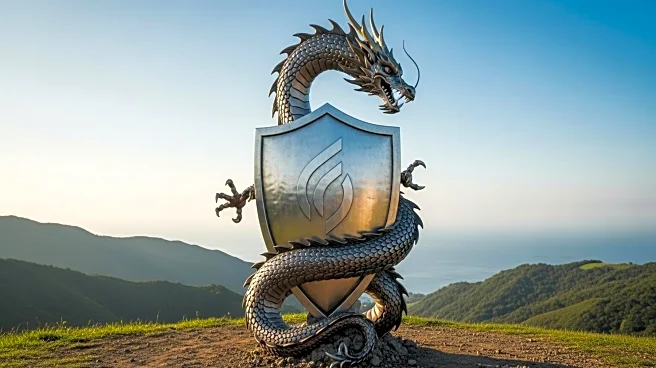What is the story about?
What's Happening?
Taiwanese President Lai Ching-te has reaffirmed Taiwan's commitment to self-defence in the face of increasing military pressure from China. During a week of defence events, Lai emphasized that Taiwan will not surrender in the event of an invasion, countering any claims of defeat as false. The government has introduced a new civil defence handbook to prepare citizens for potential threats, including a possible Chinese attack. The handbook provides crucial safety information and was presented to an audience that included Western envoys. Taiwan also hosted its largest-ever arms show, attracting international companies interested in the island's growing defence budget.
Why It's Important?
The assertion of self-defence by Taiwan's leadership is significant in the context of escalating tensions with China, which considers Taiwan part of its territory. Taiwan's stance highlights its determination to maintain sovereignty and resist external pressure. The increased defence spending and international collaboration efforts underscore Taiwan's strategic approach to bolstering its military capabilities. This development could impact regional stability and influence international relations, particularly with countries that support Taiwan's independence. The involvement of global defence companies indicates potential shifts in defence alliances and economic investments in the region.
What's Next?
Taiwan's continued focus on defence readiness suggests further investments in military capabilities and international partnerships. The government's proactive measures, such as the civil defence handbook, aim to enhance public preparedness and resilience. The arms show and collaborations with companies like Shield AI indicate ongoing efforts to strengthen Taiwan's defence industry. Future diplomatic engagements and military exercises may shape the geopolitical landscape, with potential responses from China and other stakeholders. The international community will likely monitor these developments closely, considering their implications for regional security.
Beyond the Headlines
Taiwan's defence strategy reflects broader themes of national identity and self-determination. The emphasis on freedom and democracy resonates with global values, potentially influencing international support for Taiwan. The situation raises ethical questions about sovereignty and the use of force in territorial disputes. Long-term implications may include shifts in defence policies and alliances, as countries navigate the complex dynamics between Taiwan and China. The cultural and political dimensions of Taiwan's stance could impact its global image and diplomatic relations.
















